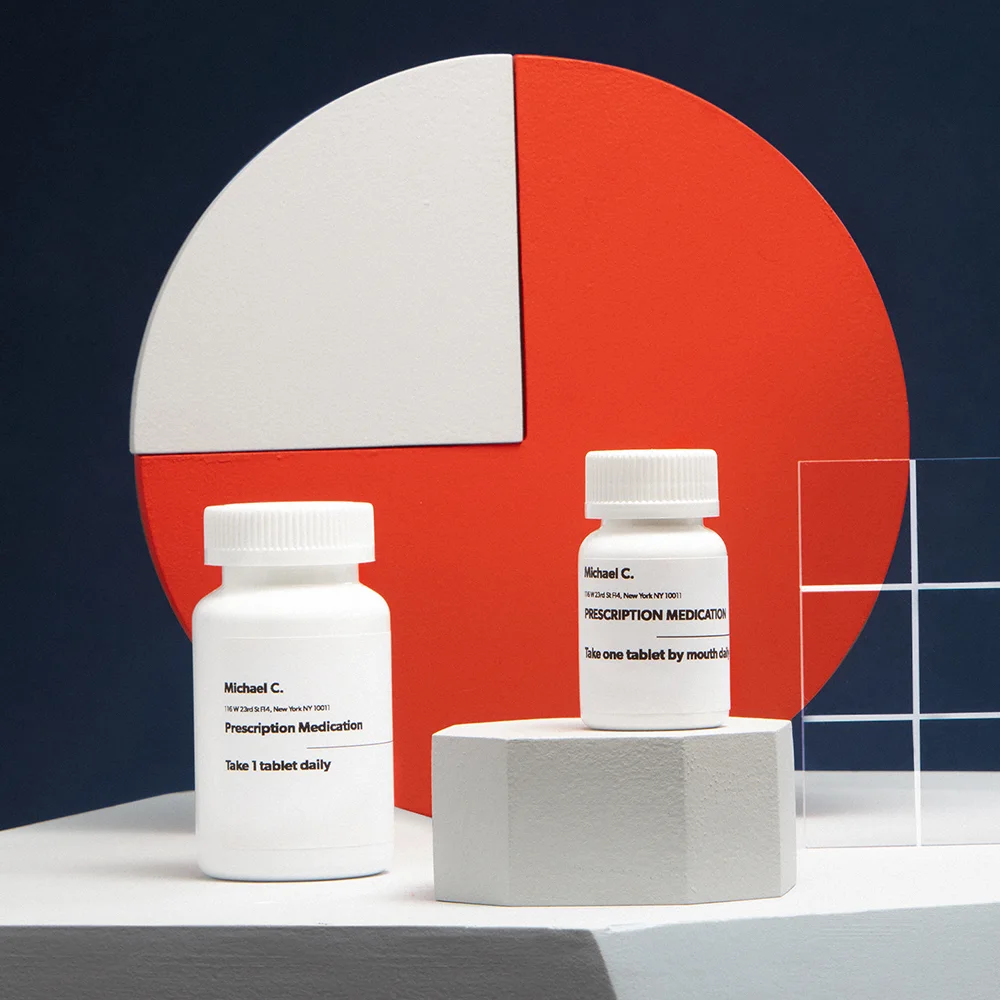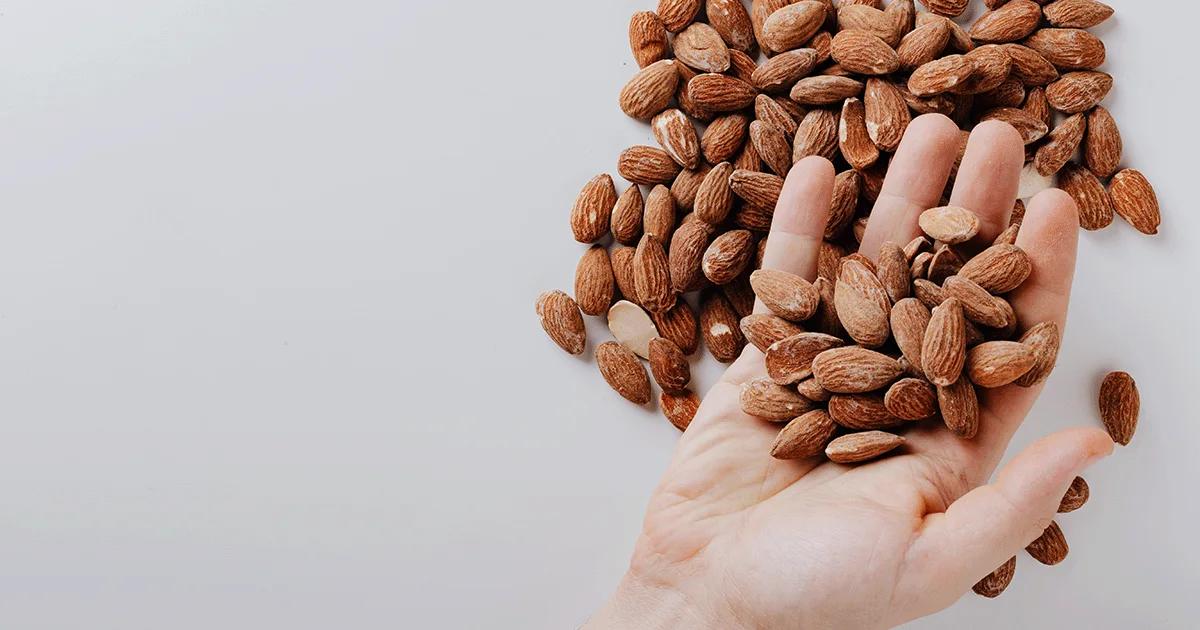Here's what we'll cover
Here's what we'll cover
There are different types of mouth ulcers that affect people of all ages. Canker sores and oral herpes (cold sores) are two that can be confused as they’re both painful sores that appear around the mouth.
You might know that cold sores are caused by the contagious herpes virus. Are canker sores herpes too? Let’s take a look at what differentiates the two––plus treatment options for both.
Canker sore vs. cold sore: how to tell the difference
It can be tough to distinguish between canker sores and cold sores as their symptoms can be similar. The first major difference is the cause. Cold sores indicate the presence of the herpes virus, while canker sores form as a result of mouth irritation.
A general rule of thumb is that cold sores can occur outside of the mouth while canker sores only happen inside the mouth. Here are some other key differences between the two (Plewa, 2021; Saleh, 2021):

What is a canker sore?
Canker sores (aphthous ulcers) are a type of lesion that occurs inside the mouth. Canker sores are small, yellow, or grey-looking ulcers often found on the inner lips, cheeks, or soft palate. You can also get a canker sore on your tongue.
Sores can be painful, tingle, or burn and skin may feel rough around the sore. You may also experience soreness in the area before one appears (Plewa, 2021).
These sores appear for a variety of reasons, but oral herpes isn’t one of them. Canker sores are common, affecting anywhere from 20–60% of people. Both kids and adults can get them (Plewa, 2021; Queiroz, 2018).
What causes canker sores?
Anything that can irritate your mouth––like braces, dentures, and dental work––can lead to a canker sore. Other things that can cause canker sores include (Plewa, 2021):
Acidic foods
Certain medications
Nutritional deficiencies
Gastrointestinal conditions like Crohn’s disease
Smoking
Mouth trauma
Some experts suggest that these mouth ulcers are due to white blood cells attacking the mucosal cell lining in the mouth (Plewa, 2021).
Canker sore symptoms
The symptoms you experience depend on the type of canker sore you have. The three main types of canker sores are (Plewa, 2021):
Minor aphthous stomatitis: These sores are tiny—less than 1 cm—and heal in about a week. This type of canker sore usually doesn’t leave any scarring.
Major aphthous stomatitis: This type is painful and usually more than 1 cm in diameter. These ulcers can last for two weeks or more.
Herpetiform aphthous stomatitis: This type is less common and is actually a cluster of smaller ulcers (usually less than 1 mm) that form a larger one. These take about a week or so to heal from.
What causes cold sores?
Also known as fever blisters, cold sores are fluid-filled blisters that appear around the lips. You cannot get a cold sore on your tongue or inside your mouth. Unlike canker sores, cold sores are highly contagious and caused by the herpes simplex virus type 1 (HSV-1).
HSV-1 spreads mainly through oral contact or exposure to saliva—kissing, having oral sex, or sharing utensils can all do the trick. Once a person gets the herpes virus, it stays in the body and can pop up at any time. For oral herpes, that comes in the form of cold sore outbreaks (Saleh, 2021).
Risk factors for cold sores
You may be concerned if you find out you have oral herpes, but a lot of people have it. It’s estimated that more than 80% of people carry the virus, and about 3.7 billion under age 50 specifically have HSV-1 (AAOM, 2015; WHO, 2022).
Risk factors for cold sores include hormonal changes, sun exposure, stress, and illnesses like the flu. Outbreaks are no fun, and if you experience recurrent ones, there are some steps you can take to prevent them (Napoletani, 2021).
Treatment and prevention
If you’re experiencing persistent sores in or around your mouth, you might want to speak to a healthcare provider. They can recommend treatment once they determine the cause.
If you’ve had canker sores from mouth appliances like braces or dentures, using dental wax or smoothing the device’s surface may help prevent them by reducing friction in the mouth. For cold sores, knowing your triggers can ward off an outbreak. For example, using sunscreen may help prevent cold sores triggered by sun exposure.
Otherwise, there’s not much you can do to prevent canker or cold sores—it’s really all about treating them once they occur.
Canker sore treatments
For canker sores, there are over-the-counter (OTC) treatments and prescriptions that help with pain and speed up healing, including (Plewa, 2021):
Topical anesthetics and ointments
Rinsing with hydrogen peroxide and water
Antiseptics to prevent infection
Analgesics and pain relievers like ibuprofen or acetaminophen
Antibiotics
Coating agents
Topical corticosteroids
Laser treatments
If you have a canker sore, steer clear of spicy or acidic foods as these can aggravate sores and cause more pain. There are many home remedies floating around online that can help, like mouth rinses and gargling with salt water. Most canker sores last a week or two and typically go away on their own (Plewa, 2021).
Cold sore treatments
Like canker sores, cold sores usually heal on their own. Prescription and OTC drugs can also facilitate healing (Saleh, 2021).
You may be tempted to pop a cold sore, but it’s not a smart idea. This can lead to scarring, a bacterial infection, or even spread to your genitals if you make contact with that area. Some popular cold sore treatments include (Saleh, 2021):
Topical anesthetics
Antiviral medications and creams like acyclovir and valacyclovir
Applying lip balm or icing the area can also provide relief. Cold sores usually clear up in about a week.
The bottom line
Canker sores are not the same as oral herpes and resolve on their own. You can usually manage any discomfort they cause with pain relievers and topical treatments.
Cold sores, on the other hand, are caused by the herpes virus. Having oral herpes doesn’t necessarily mean you have genital herpes, but it is still contagious. Steer clear of close contact with others until you heal up.
Most of the time you can treat both types of mouth sores with OTC meds and home remedies, but it never hurts to see a healthcare provider if you have concerns or your symptoms are severe.
DISCLAIMER
If you have any medical questions or concerns, please talk to your healthcare provider. The articles on Health Guide are underpinned by peer-reviewed research and information drawn from medical societies and governmental agencies. However, they are not a substitute for professional medical advice, diagnosis, or treatment.
American Dental Association (ADA). (n.d.) Canker sores . Retrieved from https://www.mouthhealthy.org/en/az-topics/c/canker-sores
American Dental Association (ADA). (n.d.). Cold sores . Retrieved from https://www.mouthhealthy.org/en/az-topics/c/cold-sores
Institute for Quality and Efficiency in Health Care . (2019). Canker sores (mouth ulcers): Overview . InformedHealth.org . Retrieved from https://www.ncbi.nlm.nih.gov/books/NBK546250/
Napoletani, G., Protto, V., Marcocci, M. E., et al. (2021). Recurrent Herpes Simplex virus type 1 (HSV-1) infection modulates neuronal aging marks in in vitro and in vivo models. International Journal of Molecular Sciences, 22 (12), 6279. doi:10.3390/ijms22126279. Retrieved from https://www.ncbi.nlm.nih.gov/pmc/articles/PMC8230621/
National Institute of Dental and Craniofacial Research. (2021). Fever blisters and canker sores . Retrieved from https://www.nidcr.nih.gov/health-info/fever-blisters-canker-sores
Plewa, M. C. & Chatterjee, K. (2021). Aphthous stomatitis. StatPearls. Retrieved on June 10, 2022 from https://www.ncbi.nlm.nih.gov/books/NBK431059/
Queiroz, S., Silva, M., Medeiros, A., et al. (2018). Recurrent aphthous ulceration: an epidemiological study of etiological factors, treatment and differential diagnosis. Anais Brasileiros de Dermatologia, 93 (3), 341–346. doi:10.1590/abd1806-4841.20186228. Retrieved from https://www.ncbi.nlm.nih.gov/pmc/articles/PMC6001102/
Saleh, D., Yarrarapu, S., & Sharma, S. (2021). Herpes Simplex Type 1. StatPearls . Retrieved on June 10, 2022 from https://www.ncbi.nlm.nih.gov/books/NBK482197/
The American Academy of Oral Medicine (AAOM). (2015). Herpes simplex virus infection . Retrieved from https://www.aaom.com/index.php?option=com_content&view=article&id=164:herpes-simplex-virus-infection&catid=22:patient-condition-information&Itemid=120
World Health Organization (WHO). (2022). Herpes simplex virus . Retrieved from https://www.who.int/news-room/fact-sheets/detail/herpes-simplex-virus










